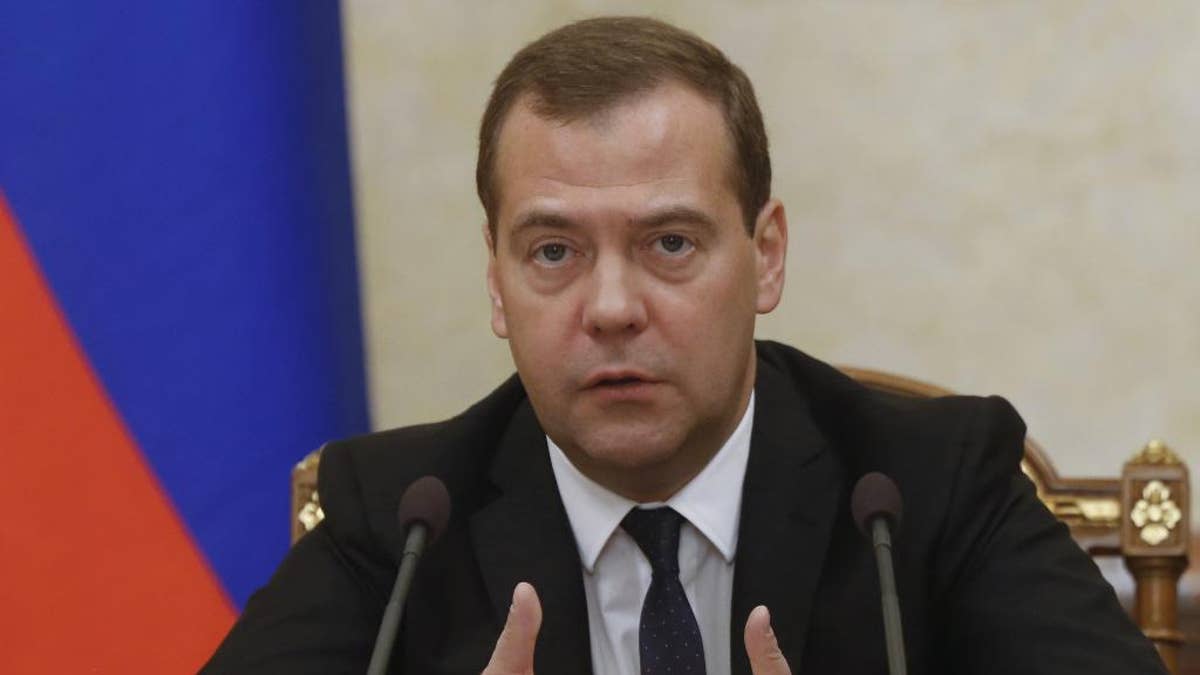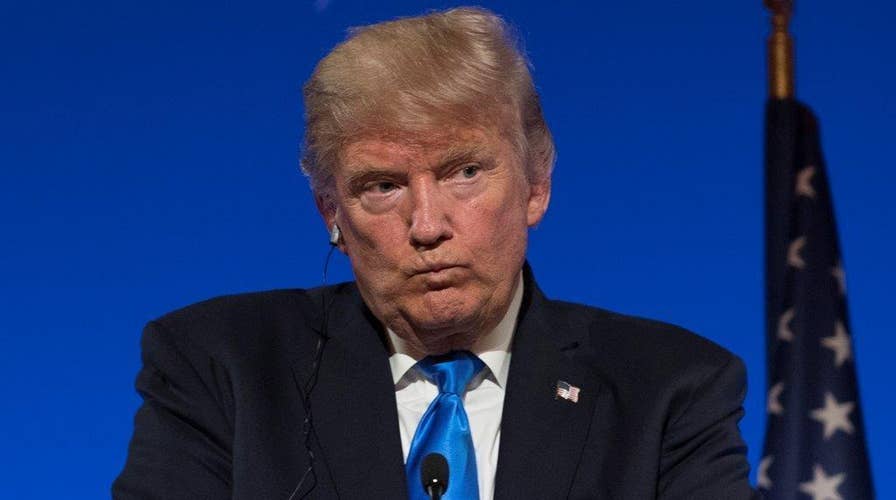Russia relations hit new lows on heels of US sanctions bill
Prime Minister Medvedev provokes President Trump, Trump points finger at Congress; James Rosen breaks down the situation on 'Special Report'
President Trump on Thursday accused Congress of bringing relations with Russia to an “all-time & very dangerous low” after sending him a sanctions bill which he reluctantly signed a day earlier – legislation that prompted a furious response from Russia’s prime minister.
“Our relationship with Russia is at an all-time & very dangerous low. You can thank Congress, the same people that can't even give us HCare!” Trump tweeted.
The accusation came after Trump signed the sweeping package of sanctions, which had passed both houses of Congress with a veto-proof majority. In signing the bill, Trump issued a written statement complaining that Congress was overstepping its constitutional bounds and impeding his ability to negotiate with foreign countries.
The sanctions were answered with a stinging rebuke by Prime Minister Dmitry Medvedev.
TRUMP SIGNS RUSSIA SANCTIONS BILL
He tweeted that the administration had shown “total weakness by handing over executive power to Congress in the most humiliating way.”
In a Facebook tirade, he also said the legislation “ends hopes for improving our relations with the new US administration.” He seemed to acknowledge that Trump was pressured into signing the bill but went on to suggest it’s all part of a sweeping process to ultimately oust him as president.
“The issue of new sanctions came about, primarily, as another way to knock Trump down a peg. New steps are to come, and they will ultimately aim to remove him from power. A non-systemic player has to be removed,” he wrote.
He added that “relations between Russia and the United States are going to be extremely tense regardless of Congress’ makeup and regardless of who is president.”

Russian Prime Minister Dmitry Medvedev heads the Cabinet meeting in the government headquarters in Moscow, Russia, Thursday, Sept. 18, 2014. (AP Photo/RIA Novosti, Dmitry Astakhov, Government Press Service) (The Associated Press)
The breakdown in any sense of comity between Washington and Moscow follows Trump’s high-profile meeting with President Vladimir Putin on the sidelines of the G-20 summit in Germany last month.
At the time, Secretary of State Rex Tillerson said the two leaders "connected very quickly" and had "positive chemistry," focusing on ways to move forward as opposed to "relitigating" the past.
The sanctions bill, though, opens a new phase of tensions.
The legislation is aimed at penalizing Moscow for election interference and for its military aggression in Ukraine and Syria, where the Kremlin has backed President Bashar Assad. It bars Trump from waiving the Russia sanctions without first securing approval from Congress, and also imposes new financial sanctions on Iran and North Korea.
Trump said the law will "punish and deter bad behavior" by the governments of Iran and North Korea as well as enhance existing sanctions on Moscow. But he made no secret of his distaste for what the bill does to his ability to govern.
"The bill remains seriously flawed -- particularly because it encroaches on the executive branch's authority to negotiate," he said in a statement.
Last week, the House overwhelmingly backed the bill, 419-3, and the Senate rapidly followed, 98-2. Those margins guaranteed that Congress would be able to beat back any veto attempt.
Putin also said Sunday the U.S. would have to cut 755 of its embassy and consular staff in Russia.
The congressional review section of the bill that Trump objects to was a key feature for many members of Congress.
Trump will be required to send a report explaining why he wants to suspend or terminate a particular set of the sanctions on Russia. Lawmakers would then have 30 days to decide whether to allow him to do so.
Tillerson echoed the president's sentiments that the measure poses more diplomatic hindrances than solutions.
"Neither the president nor I are very happy about that," Tillerson said Tuesday. "We were clear that we didn't think that was going to be helpful to our efforts, but that's the decision they made."
The Associated Press contributed to this report.





